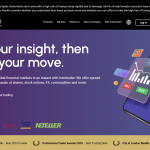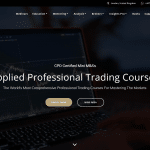The foreign exchange market is the most liquid and decentralised financial market in the world. Despite its size and transparency, many traders ask: can forex brokers manipulate the market? The answer depends on the broker’s business model, regulatory environment, and internal practices. In this article, we examine the mechanisms brokers might use to influence trade outcomes and how traders can protect themselves.
Understanding Broker Models: A vs. B Book
A-Book Brokers (STP/ECN)
- Send your trades directly to liquidity providers
- No conflict of interest – the broker earns via spreads or commissions
- Cannot manipulate prices – executions are market-driven
B-Book Brokers (Market Makers)
- Take the opposite side of your trade
- Profit when you lose, and vice versa
- Have the ability to manipulate execution, spreads, or price feeds internally
Not all B-book brokers are dishonest. Many offer fair pricing and protect retail traders from market volatility. However, some may engage in unethical practices to maximise profit.
Ways Forex Brokers Could Manipulate Trades
1. Slippage Manipulation
- Artificially delaying orders during news events or high volatility
- Causes execution at worse-than-expected prices
- Common with unregulated or offshore brokers
2. Stop Hunting (Price Spike Triggers)
- Brokers may artificially widen spreads or inject fake price spikes
- These spikes trigger client stop-loss orders just before the market reverses
- More prevalent in B-book environments
3. Requotes and Delays
- Traders receive an error: “Price has changed. Accept new price?”
- This disrupts scalping or breakout strategies
- Legitimate ECN/STP brokers almost never requote
4. Asymmetric Slippage
- Broker applies negative slippage on losses but avoids positive slippage on wins
- Creates an unfair disadvantage over time
5. Order Freezing or Platform Malfunctions
- Traders experience platform delays just before news or near key levels
- May be disguised as “server overload”
- More common on MT4 with offshore brokers
Are These Practices Legal?
- No, manipulation is illegal in regulated markets
- FCA, ASIC, CySEC, FSCA and other regulators require price transparency and audit logs
- Brokers caught manipulating trades can lose their licence and face fines
How to Protect Yourself from Broker Manipulation
✅ Choose a Regulated Broker
- Prefer brokers licensed by FCA, ASIC, CySEC, FSCA
- Avoid offshore-only brokers in jurisdictions with poor oversight
✅ Use ECN or STP Brokers
- These brokers send trades to external liquidity providers
- They have no incentive to make you lose
✅ Verify Price Feeds
- Cross-check broker pricing with third-party feeds (e.g., TradingView, Bloomberg)
- Repeated unexplained price spikes may indicate manipulation
✅ Test the Broker with a Small Account
- Monitor slippage, execution time, and withdrawal process
- Consider switching if unusual patterns persist
✅ Read Real User Reviews
- Sites like Trustpilot, Forex Peace Army, and Reddit can reveal broker behaviour
- Be cautious of fake 5-star reviews and paid testimonials
Key Takeaways
- Yes, some brokers can and do manipulate trades, especially if they operate under a B-book model without regulation
- STP/ECN brokers have no reason to manipulate, as they pass trades to the market
- Spread widening, fake spikes, and delayed execution are common signs of manipulation
- The best protection is choosing a well-regulated broker and avoiding offers that seem too good to be true
- Always test a broker’s live environment before scaling up your capital
Frequently Asked Questions
Can regulated forex brokers manipulate trades?
Rarely. Regulated brokers are audited and monitored, making manipulation risky and punishable by law.
What is stop hunting and do brokers do it?
Stop hunting refers to artificially triggering client stop-losses. Some brokers may widen spreads to exploit this tactic, especially during low liquidity.
How do I know if my broker is manipulating trades?
Signs include frequent slippage, stop-loss triggers far from market price, or platform freezing at key levels. Compare prices to third-party feeds to confirm.
Is MT4 safe from manipulation?
MT4 is just a platform. Safety depends on the broker’s price feed and execution integrity, not the software itself.
Should I avoid all market maker brokers?
Not necessarily. Many regulated market makers offer fair trading. The issue is with unregulated brokers that abuse their dealing desk privileges.




Leave a Reply
Please log in or register to share your thoughts.